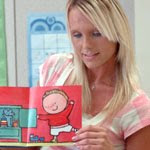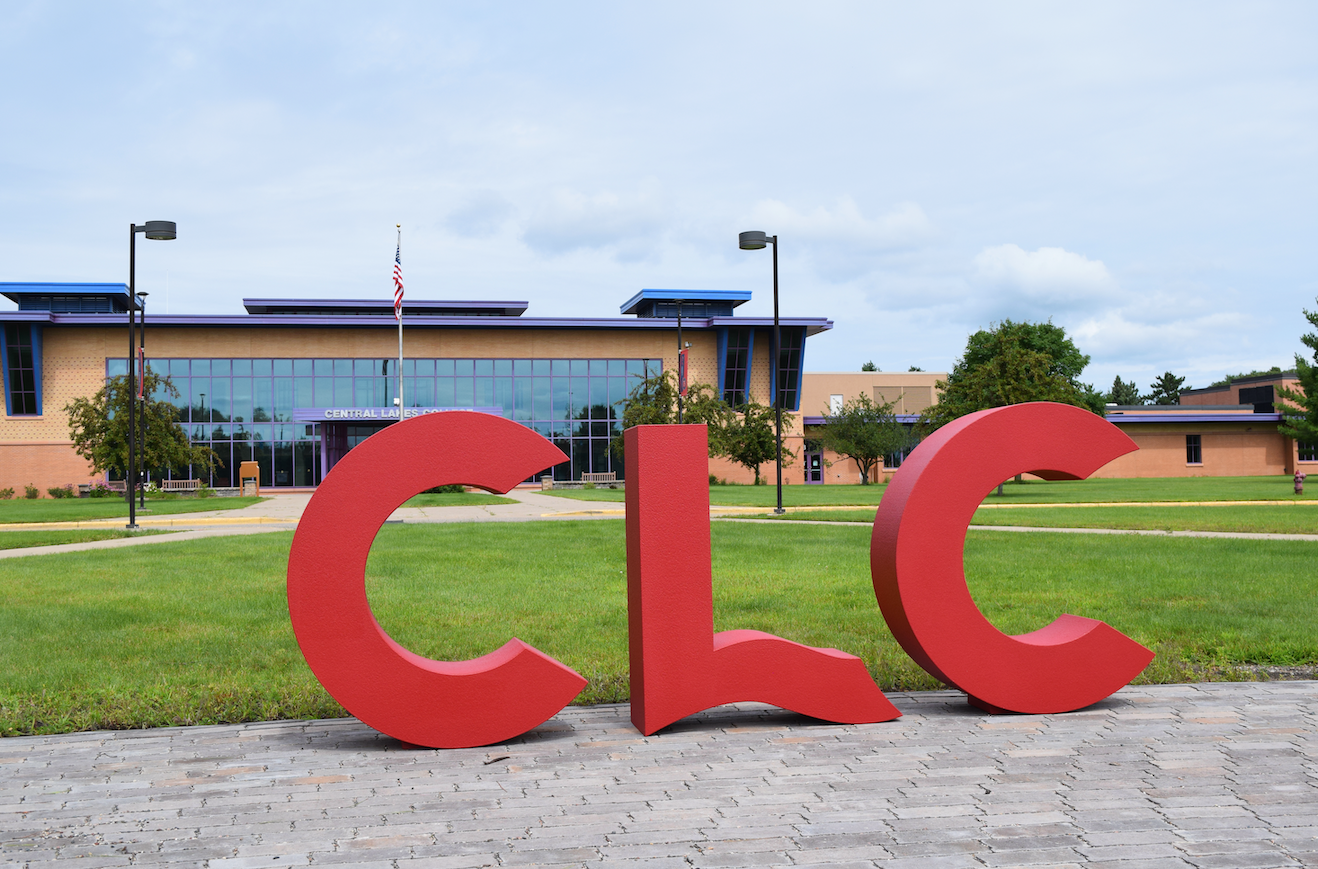 Jessica Teague, Little Falls, is one of the CLC students in Reading I. She is shown reading to pre-schoolers.
Jessica Teague, Little Falls, is one of the CLC students in Reading I. She is shown reading to pre-schoolers.
The CLC students are enrolled in basic reading to improve their comprehension, vocabulary, and navigate college textbooks. They’re challenged and are moving forward.
“Some students in college reading courses may lack the persistence to earn a degree,” she said. “Nevertheless, their quality of life is improved by what they do learn.”
Bedard’s students are required to read to a group of children at the Early Care and Childhood Education Center on the Brainerd campus. Sessions engage the critical thinking skills enhanced by listening, observing — and reading. As each classmate reads, the others fill out a 15-point evaluation sheet.
“Comprehension occurs the same way in pre-schoolers as it does in college students,” Bedard said, “so ‘grading’ classmates reinforces the process.”
They’re asked to weigh in on voice volume, clarity, pauses to maintain each child’s attention, and a follow-up discussion period with the children about what they just heard.
“It’s such a great feeling to be around the kids,” said Jessica Teague of Little Falls. “They always put a smile on your face.”
Teague and Jayme Reynolds, Deerwood, individually in front of their classmates, read aloud from a favorite children’s book to a dozen youngsters surrounded by the “big kids.”
Both said it was hard for them to speak in front of a large group for the first time. But the pre-schoolers loved it. Teague even received an invitation to one girl’s fourth birthday party.
“The admiration affirms the self-worth of college people,” said Bedard.
“The kids really jumped into the activity. I liked reading to them,” said Reynolds.
“It was amusing to interact,” said DeShawn Creque of St. Thomas, Virgin Islands. “I had a fun experience with Cooper. He was fun to hang with.”
For her developmental reading course Bedard applies assorted findings from the 20 different courses she has taught. From one she developed called “Thinking, Learning and Communicating” she meshes the goal of personal empowerment.
Two-year community and technical colleges like CLC are “open access” institutions, meaning that anyone with a high school diploma or GED can be admitted.
Developmental reading has grown as more college students entering college did not anticipate and prepare for college throughout high school. Students out of high school for a year or so also may have lost skills they once had mastered.
Last fall 14 percent of new enrolling freshmen at CLC needed Reading I, the five-credit developmental course Bedard and Cynthia Bunting teach this fall. And 30 percent needed Reading II, the second-level developmental course to equip college learners.
Nationally, 70 percent of developmental reading students don’t complete the course. At CLC, Bedard estimated about 50 percent make it.
“These students may have stayed in the class long enough to understand the value and process of reading to children. If so, there’s a chance that the multi-generational illiteracy/poverty cycle can be broken for the children, even if it wasn’t for the parents.”
CLC and a majority of the other 31 MnSCU colleges and universities give trial placement tests to 10th- and 11th-grade students so they have time to improve their college preparation.
While many are surprised at the number of students requiring developmental education in math or reading at all institutions, Bedard urges people to start where they are and move forward. “The only real mistake is doing nothing at all,” she said. “Everything else has the potential to be a significant educational experience.”
 CLC News The news and events from Central Lakes College
CLC News The news and events from Central Lakes College



